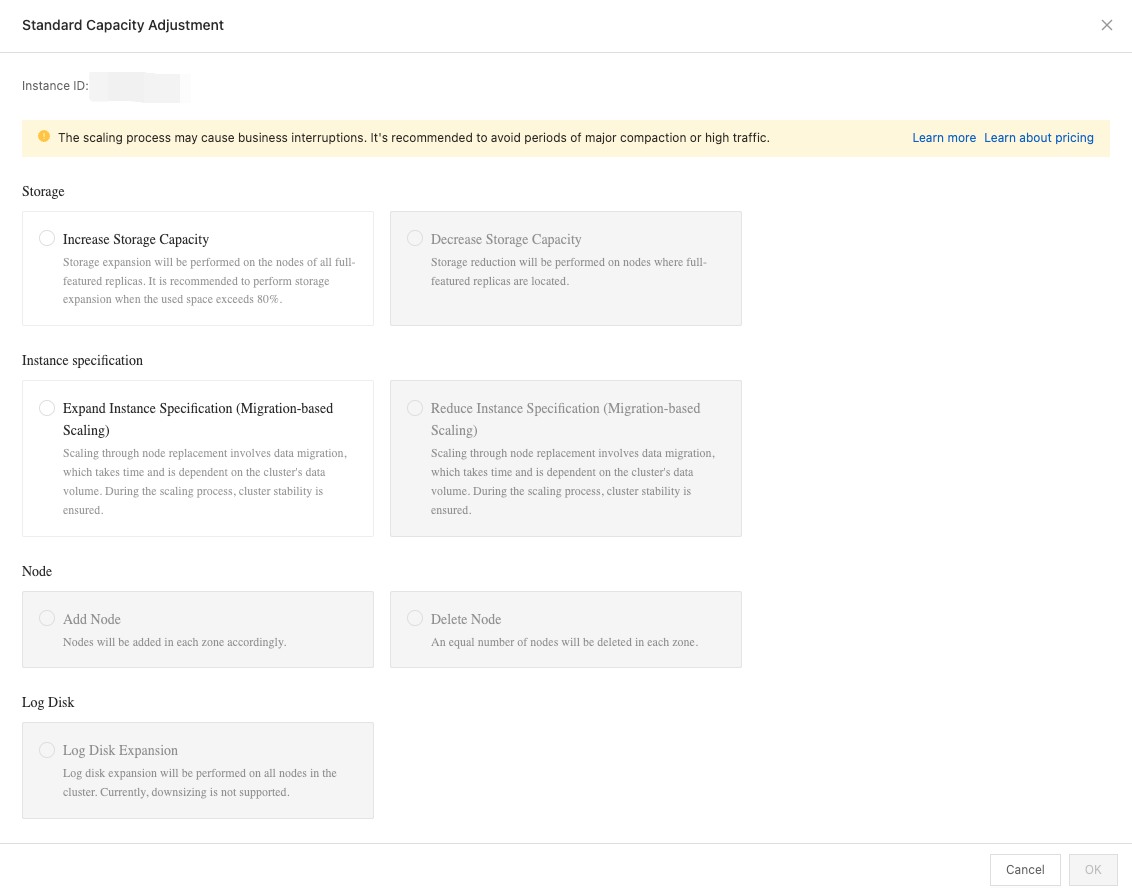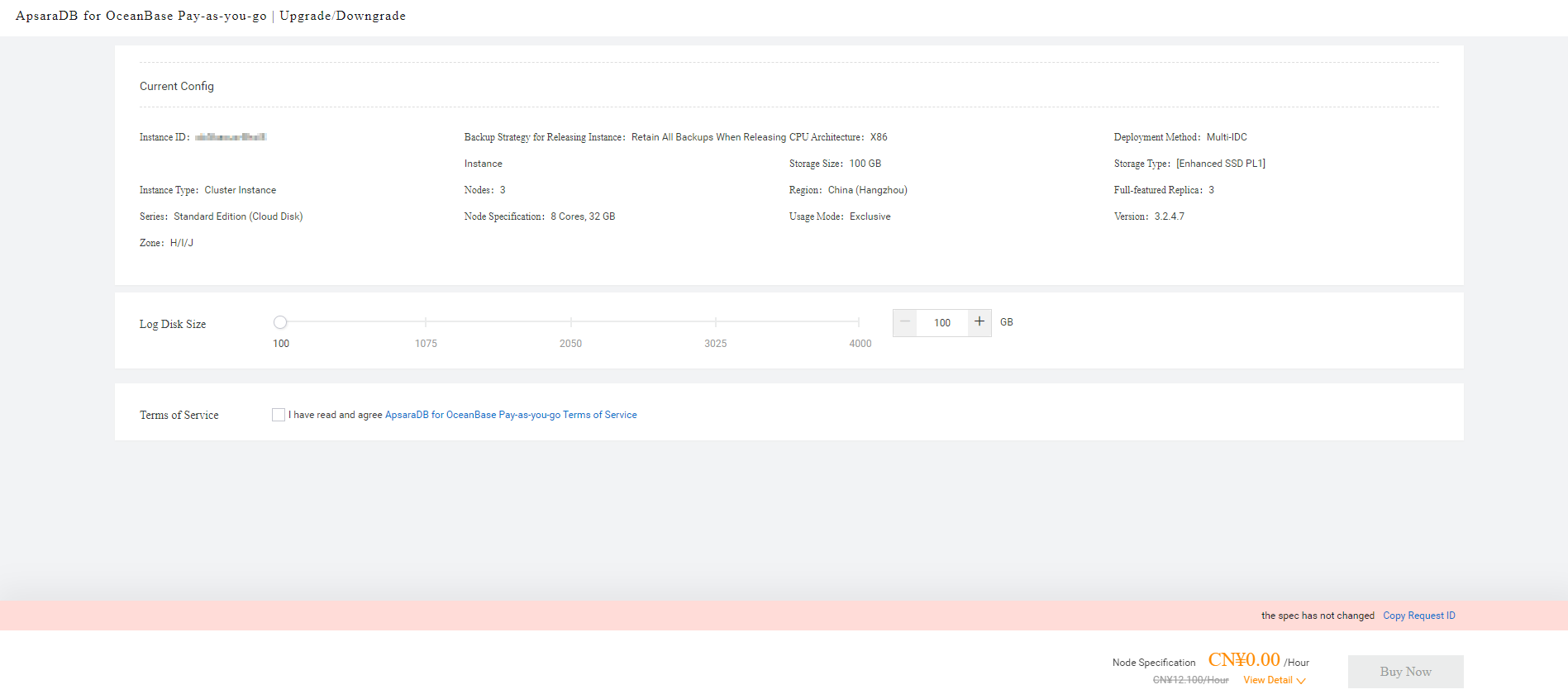Describes the procedure and considerations for scaling out the log disk. Log disk scale-out is an allowlist feature. To use this feature, contact ApsaraDB for OceanBase Technical Support.
Background information
ApsaraDB for OceanBase stores transaction logs (clogs) on a separate log disk. clogs are similar to the redo logs in MySQL. clogs ensure the atomicity, durability, and isolation of transaction processing, and thereby guarantees high availability of the system. In a distributed architecture, multiple database replicas synchronize clogs over the Paxos protocol to ensure strong data consistency.
When the storage space of the log disk is insufficient, the system cannot generate or write logs for new transaction records. As a result, the transaction commit fails. In addition, frequent disk space alerts and continuous log cleanup attempts consume additional input and output (I/O) resources, which further affects the overall operating performance and response speed of the system. To prevent damages to data integrity, transaction interruption, and performance degradation, we recommend that you scale out the log disk.
When the log amount on the log disk reaches the storage threshold, the earliest log records will be deleted.
Scaling out the log disk does not affect your business. However, to ensure business stability, we still recommend that you perform the operation in off-peak hours.
Prerequisites
Before you scale out the log disk, perform a precheck and make sure that the following conditions are met:
The current cluster instance is running.
All tenants in the current cluster instance are running.
The storage capacity of the current cluster instance is not temporary.
The storage type of the current cluster is cloud disk.
Procedure
Log on to the ApsaraDB for OceanBase console.
In the left-side navigation pane, click Instances.
In the instance list, click the name of the target cluster instance to go to the Cluster Instance Workspace page.
Click the More icon in the upper-right corner and select Standard Capacity Adjustment.

In the dialog box that appears, select Log Disk Expansion and then click OK.
NoteApsaraDB for OceanBase does not support log disk scale-in. Once the log disk is scaled out, it cannot be scaled in.
On the purchase page, set the log disk size and agree to the terms of services. For more information about the billing, see Pricing.

Click Buy Now.
What to do next
After the operation, you can go to the cluster instance workspace to check the current log disk specifications of the cluster.